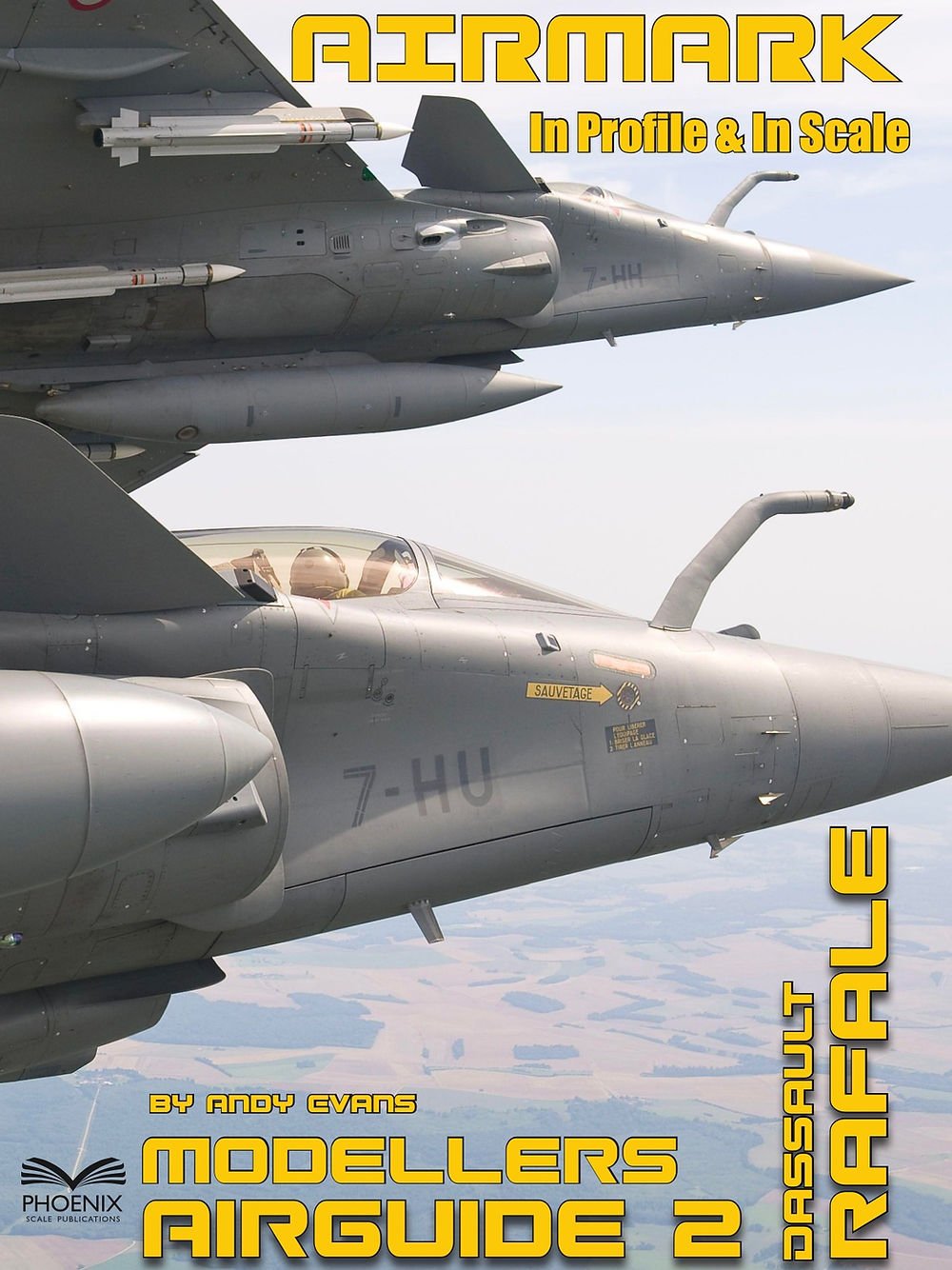
Airmark Airguide #2 Dassault Rafale
By Andy Evans
The Dassault Rafale is a French twin-engine, canard delta wing, multirole fighter aircraft, equipped with a wide range of weapons, the Rafale is intended to perform air supremacy, interdiction, aerial reconnaissance, ground support, in-depth strike, anti-ship strike and nuclear deterrence missions, and is referred to as an ‘omnirole’ aircraft. In the late 1970s, the French Air Force and French Navy were seeking to replace and consolidate their existing fleets of aircraft. In order to reduce development costs and boost prospective sales, France entered into an arrangement with the UK, Germany, Italy and Spain to produce an agile multi-purpose ‘Future European Fighter Aircraft’ (which would become the Eurofighter Typhoon). Subsequent disagreements over workshare and differing requirements led to France's pursuit of its own development programme. Dassault built a technology demonstrator which first flew in July 1986 as part of an eight-year flight-test programme, paving the way for the go-ahead of the project. The Rafale is distinct from other European fighters of its era in that it is almost entirely built by one country, involving most of France's major defence contractors, such as Dassault, Thales and Safran. Many of the aircraft's avionics and features, such as direct voice input, the RBE2 AA active electronically scanned array (AESA) radar and the optronique secteur frontal infra-red search and track (IRST) sensor, were domestically developed and produced for the Rafale programme. Originally scheduled to enter service in 1996, the Rafale suffered significant delays due to post-Cold War budget cuts and changes in priorities. The aircraft is available in three main variants: Rafale C single-seat land-based version, Rafale B twin-seat land-based version, and Rafale M single-seat carrier-based version.

